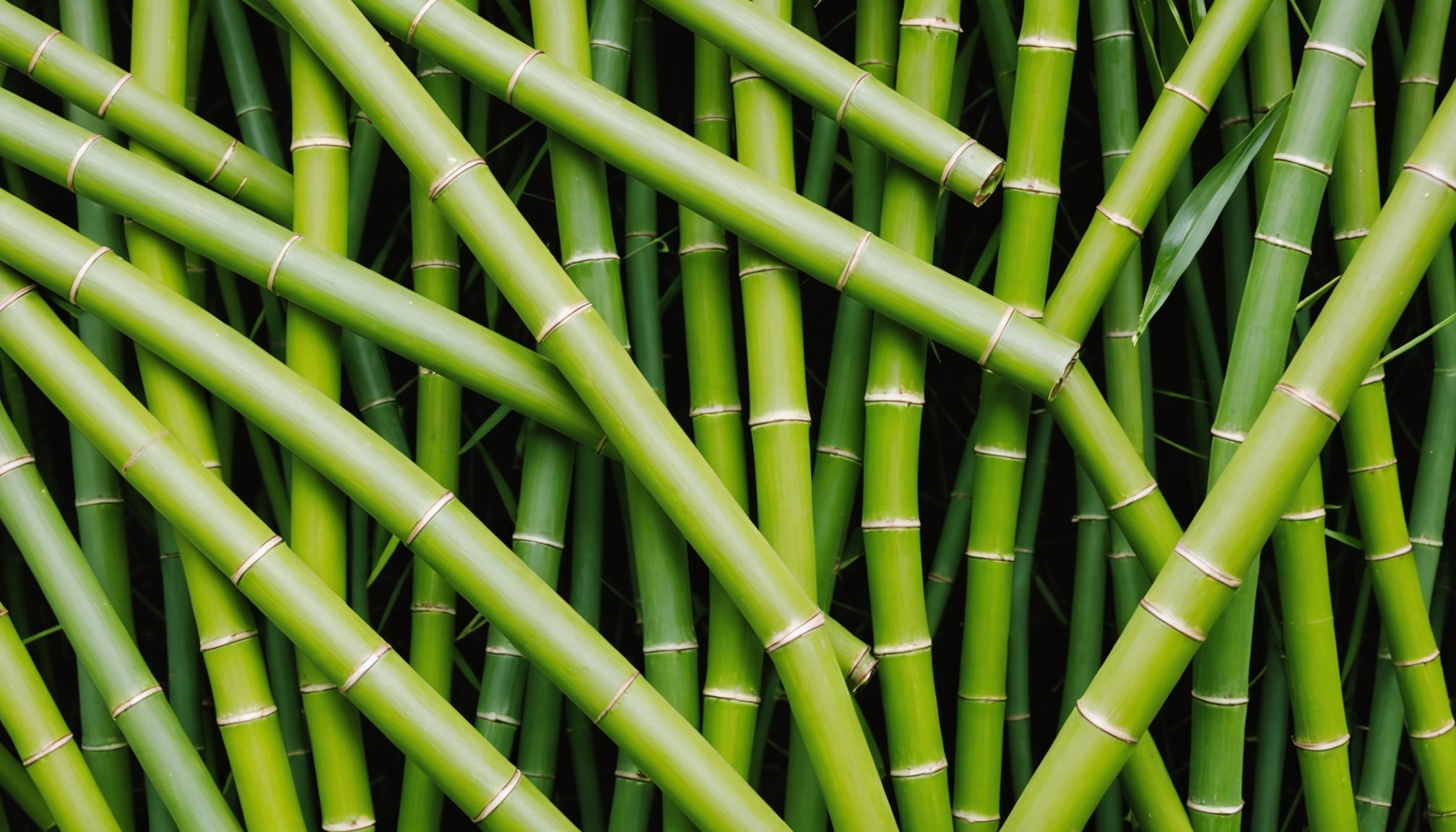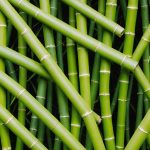Eco-Friendly Properties of Bamboo Fabric
Bamboo fabric stands out for its eco-friendly characteristics, making it a popular choice among sustainable materials. The sustainability of bamboo cultivation is significant; it grows rapidly and requires less water than many other crops. Additionally, bamboo doesn’t require harmful pesticides, since it has its own natural anti-bacterial property, promoting a healthier ecosystem.
What makes bamboo fabric particularly sustainable? Unlike synthetic fabrics that rely on petrochemicals, bamboo is a renewable resource. Its fast growth cycle means it can be harvested without depleting the environment. This efficiency allows for continuous cultivation that doesn’t compromise the land it grows on, providing a model of resource efficiency.
Also read : Ultimate Guide to Keeping Your White Sneakers Spotless: Expert Cleaning and Maintenance Tips
One noteworthy benefit of bamboo fabric is its biodegradability. If composted properly, bamboo decomposes naturally and returns to the environment within months. In contrast, synthetic fabrics can take decades to break down, contributing to longstanding ecological problems. The environmental impact of bamboo fabric is therefore considerably lower, as it minimizes waste and reduces the accumulation of synthetic materials in landfills.
Collectively, these properties underscore bamboo fabric’s advantage as a green textile option, aligning with growing consumer demands for more responsible and sustainable materials in the fashion industry.
In the same genre : Top Natural Strategies to Ease Anxiety Before Important Meetings or Presentations
Bamboo Fabric in a Sustainable Wardrobe
Bamboo clothing is gaining popularity among those seeking an eco-conscious fashion choice. As you build a sustainable wardrobe, incorporating bamboo clothing offers both comfort and environmental benefits.
Practical Tips for Integrating Bamboo Clothing
To seamlessly incorporate bamboo garments into your daily wear, consider choosing versatile pieces. Bamboo fabric can effortlessly mix with other sustainable materials like organic cotton or hemp, enhancing your wardrobe’s eco-friendliness. When caring for bamboo clothing, follow specific washing instructions to ensure longevity. This typically involves cold washing and air drying to maintain fabric quality.
Notable Bamboo Clothing Brands
Several ethical brands prioritize sustainability in their bamboo clothing collections. These brands often feature a variety of products ranging from everyday basics to more stylish items, catering to different budgets. Brand mission statements commonly emphasize ethical production, reducing environmental impact, and offering stylish eco-conscious options.
Styling Bamboo Clothing
Styling bamboo clothing requires some creativity, focused on comfort and sustainability. Consider layering bamboo pieces for seasonal adjustments—bamboo tops can be paired under sustainable jackets or used as base layers in winter. Accessorizing with ethical, eco-friendly options can further enhance your bamboo outfits while maintaining a fashionable look.
Health Benefits of Bamboo Fabric
Bamboo fabric offers a plethora of health benefits, making it a popular choice for those with sensitive skin or allergies. Its hypoallergenic properties are a boon for individuals prone to skin irritations. This means that bamboo fabric is far less likely to cause an allergic reaction compared to other materials, allowing for a gentle touch on the skin that many people find comforting.
The comfort of bamboo fabric is further enhanced by its superb breathability. The natural fibers allow air to circulate freely, keeping the wearer cool in warm weather. Coupled with its moisture-wicking capabilities, bamboo fabric effectively draws sweat away from the body, promoting a dry, pleasant feel on the skin. Such attributes make bamboo the smart choice for regulating body temperature and ensuring optimal comfort.
Adding to its array of advantages, bamboo fabric is known for its potential antibacterial qualities. These properties can help reduce the growth of bacteria, which are often responsible for unpleasant odours and common skin infections. By maintaining a more hygienic environment against the skin, bamboo materials contribute to an overall healthier lifestyle, making them a preferred option for daily wear.
Comparative Analysis: Bamboo Fabric vs. Other Materials
Examining bamboo alongside other common materials reveals intriguing insights for environmentally conscious consumers. Bamboo material represents an interesting alternative in the ongoing debate of bamboo vs cotton.
Bamboo vs. Cotton
When discussing bamboo vs cotton, the environmental impact of production is significant. Bamboo naturally requires less water than cotton, reducing its environmental footprint in regions prioritising water conservation. Furthermore, cotton cultivation often relies on agrochemicals, which might not be necessary for sustainable bamboo processing.
Moving to durability, bamboo fabrics generally boast a longer lifespan due to their inherent strength and resistance to wear and tear. On the other hand, cotton, though breathable and soft initially, tends to degrade faster after multiple washes, potentially leading to quicker waste generation.
Economically, cost considerations may deter some from choosing bamboo garments. While upfront prices for bamboo clothing can be higher, the longevity and eco-friendly nature often compensate in the long run. Those considering the sustainability aspect might find the initial investment worthwhile compared to frequently replacing worn-out cotton clothes. As consumers navigate these options, understanding these distinctions is essential to making informed wardrobe choices.
Supporting Statistics and Expert Opinions
Recent studies emphasize the eco-friendly statistics regarding bamboo cultivation. Bamboo absorbs five times more carbon dioxide than similar plants, highlighting its considerable impact on ecosystems. Additionally, it can regenerate without the need for replanting, making it a highly sustainable resource. This regeneration process aids in soil conservation and biodiversity preservation.
From a health perspective, research into bamboo fabric unveils various health benefits. As an antimicrobial material, bamboo fabric naturally resists bacterial growth, promoting hygiene. This property has been specifically beneficial in environments where maintaining cleanliness is a priority.
Expert testimonials lend further weight to bamboo’s reduced environmental footprint and health benefits. Sustainable fashion advocates praise its role in reducing fashion’s carbon footprint. according to leading environmentalists, bamboo-based production processes consume significantly less water and chemicals, aligning with eco-conscious objectives.
Key endorsements from these experts highlight bamboo fabrics’ versatility and resilience. These qualities, combined with its environmentally friendly nature, make bamboo a preferred choice for sustainable fashion. As research progresses, bamboo is expected to play an increasingly prominent role in eco-friendly initiatives, addressing both environmental and health considerations effectively.











